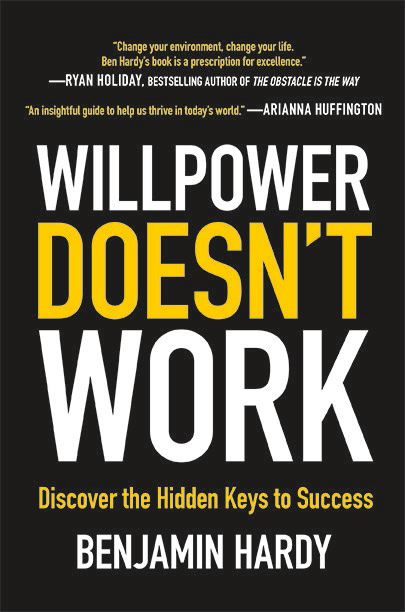Your #Career : #CareerAdvice #ResumeWriting – 6 Ways to Hack Your #Resume and Get a #BetterJob — Without an Advanced Degree….Before jumping Back into School, Check if There are other Ways to Build your Credentials and Hack your Career — without Getting into Debt. Here are Some Alternatives.
One path to build your desired credentials? Returning to college to earn an additional degree. While an advanced degree can open the door to more career opportunities, it comes at a steep cost. The average Master of Business Administration (MBA) graduate, for example, owes $42,000 in combined undergrad and grad school debt. A Master of Arts graduate averages more than $58,000 in student loans.
Before jumping back into school, check if there are other ways to build your credentials and hack your career — without getting into debt. Here are some alternatives to beef up your resume more quickly, easily and cheaply.
1. Think Outside the Degree
If you’re thinking of returning to college to earn an additional degree, determine what you hope to gain from that experience.
Some careers are accessible only by earning certain credentials, as is the case for lawyers and doctors. But if you’re eyeing an MBA to start your own business or a master’s degree in creative writing to write a book, consider how you could accomplish these goals without a degree.
If you’re excited about learning from experts in your field of interest, for instance, finding a mentor could be effective — and much cheaper than the cost of college.
Build connections with such professionals through networking events, mutual contacts or social media. If you establish a good acquaintanceship with them, see if they’re willing to provide guidance or share their expertise.
Like this Article ? Share It ! You now can easily enjoy/follow/share Today our Award Winning Articles/Blogs with Now Over 2.5 Million Growing Participates Worldwide in our various Social Media formats below:
FSC LinkedIn Network: www.linkedin.com/in/fscnetwork
Facebook: http://www.facebook.com/pages/First-Sun-Consulting-LLC-Outplacement-Services/213542315355343?sk=wall
Google+: https://plus.google.com/115673713231115398101/posts?hl=en
Twitter: Follow us @ firstsunllc
Question: Want the ‘the best/current articles/blogs on the web’ on Job Search, Resume, Advancing/Changing your Career, or simply Managing People?
Answer: Simply go to our FSC Career Blog below & type(#career, #leadership, #life) in Blog Search: https://www.firstsun.com/fsc-career-blog/
What Skill Sets do You have to be ‘Sharpened’ ?
Continue of article:
2. Earn an Accreditation or Certification
Whether you want to change career paths or take your qualifications to the next level, look into certifications that can help you get there.
“You can take certificate programs, learn, and build your resume for the path you’re pursuing to show you’re on your way,” said Vicki Salemi, a career expert for job search website Monster.
Perhaps you’re considering a second bachelor’s degree in computer science to switch to a programming career. You might be able to make that leap with a smaller investment of time and money through a coding boot camp instead.
Some certifications in certain fields can be completed in hours. Others might require months of study or a big exam to get certified. Explore different programs to see what could be an option for you.
3. Develop New Knowledge and Skills
You don’t have to earn college credits to continue your education and improve your professional skills.
Your education can take many forms, from noncredit community classes to online courses. You can take online courses through companies such as Udemy or General Assembly, for example.
Some online courses offer a certification of completion that can boost your resume.
4. Volunteer to Do the Kind of Work You’re Eyeing
Maybe you aren’t yet qualified for the job you want — at least, not enough to get a paid gig. But if you’re willing to work for free or take on extra tasks at your current job, you could accumulate hands-on experience in a new field or develop a new skill.
For example, you can “volunteer in your community and in your company on projects outside of your department,” Salemi suggested. Or you could do freelance work at a steep discount to build your portfolio.
5. Become Involved in Your Professional Community
Networking is a smart move to build your career, but it also can help enhance your resume. Seek out ways to become involved with professional conferences and groups in your current or desired career field.
In the process, you could gain some accolades to add to your resume or cite in job interviews. Here are some ways to do so, according to Salemi:
Submit your work in professional competitions or apply for awards.
Volunteer to work on the boards of local clubs, chapters or organizations for your profession.
Organize a workshop or make a presentation on a subject at a seminar.
Submit proposals to participate in a panel at a professional conference or convention.
Start blogging and posting on social media about topics related to your career.
Engage other experts online and in person to build credibility in your field.
6. Reframe Your Existing Qualifications and Skills
Sometimes you don’t need more skills or experience; instead, you can demonstrate the connection between the work you’ve done and the job requirements of an employer.
Start with your cover letter and resume. “On [your] resume, even if you don’t have a specific skill set an employer is looking for, highlight experiences and your abilities to show that you’ve done something similar,” Salemi suggested.
If you get an interview, make sure you’re prepared to make your case. “When you speak about your skill set during a job interview, clearly articulate how you would be able to still do the job,” Salemi said.
Before you start planning a return to college, consider if you might already be more qualified than you think. Building the credentials you need and filling any gaps in your qualifications often can happen faster and be done more cheaply than earning an advanced degree.
GlassDoor.com | June 11, 2018 | Posted by Elyssa Kirkham, Student Loan Hero
[/fusion_builder_column][/fusion_builder_row][/fusion_builder_container]












